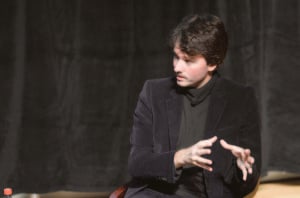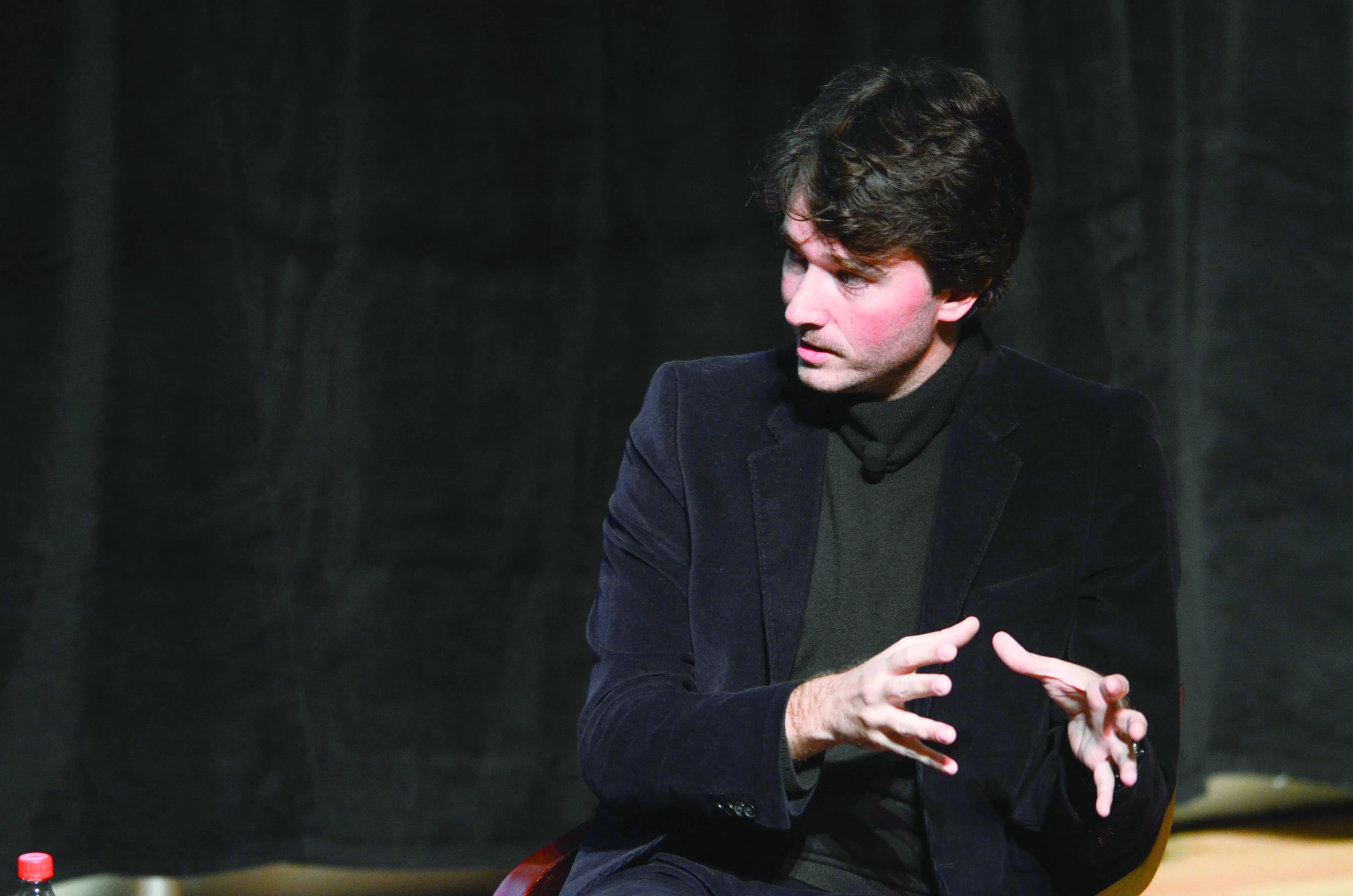The Stanford Arts Institute held the third event of its Fashion at Stanford Series on Feb. 4, hosting a conversation with Berluti CEO Antoine Arnault that spotlighted luxury.
Berluti’s appearance followed two earlier talks that focused on fashion, retail and image making, by Ron Johnson on Dec. 2 and Annie Leibovitz and Pascal Dangin on Jan. 9.
Berluti, a leather goods and shoes brand, is part of the Paris-based luxury goods conglomerate LVMH Moët Hennessy Louis Vuitton S.A., of which Arnault’s father, Bernald Arnault, is chairman and CEO. The younger Arnault has also served as director of communications for Louis Vuitton and, in 2013, became president of Loro Piana.

“Luxury is a difficult object to describe — it’s been the object of hundreds of years of discussion,” Arnault told Matthew Tiews M.A. ’99 Ph.D. ’04, executive director of arts programs at Stanford, who moderated the discussion. “We definitely don’t need it, but it’s good for the soul.”
Arnault went on to describe the intimate relationship between luxury and time.
“I think to create brands such as ours and to develop them takes time, and many people when you ask them what is luxury, they say time. And in a way it’s true,” he said. “It takes time to create this history…It is hundreds of years of work — it’s just something that is of the essence of our products.”
He emphasized the importance of time both in the context of making products as well as for respecting traditions vital to the success and identity of the LVMH group brands. In 2011, Arnault initiated the “Journées Particulières” project, which gave behind-the-scenes access to the Maisons of the LVMH group. He started the project in response to criticisms that his father focused solely on the “bottom line” of his businesses, such as outsourcing manufacturing to developing countries. These rumors compelled Arnault to “for one weekend, open our doors and transparently show what happens in our workshop.”
Arnault highlighted his dedication to time and tradition by emphasizing not only how LVMH’s brands are exclusively manufactured in Italy and France, but also how consumer and societal whims do not compromise the essences of the brands. When several audience members inquired about Berluti and LVMH’s position on the growing overlap of technology with fashion and wearable technologies, Arnault insisted that the brands would not get involved with the nascent field.
“We need to focus on what we know to do best, and our domain is the highest quality in luxury products and spending the most attention on uncompromising quality, not on being technologically advanced,” he said.
Arnault concluded on an optimistic note in assessing the future of luxury brands in America.
“You’ll be surprised to know that luxury in America grew faster in 2013 than [it did] in China,” he said. “So we’ve got a lot of optimism towards what’s going on in America.”
Contact Sarah Salameh at ssalameh‘at’ stanford.edu.
